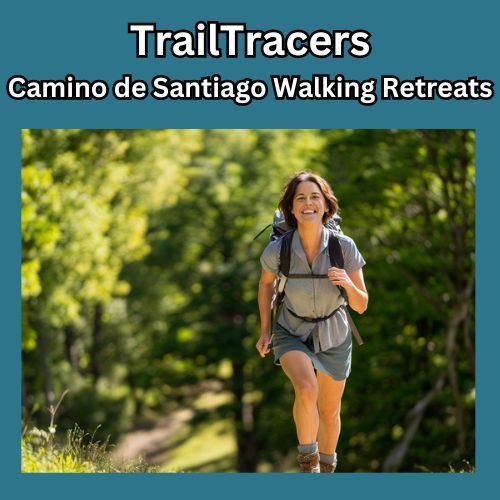The Lost Art of Authentic Retreats
The term “retreat” has lost much of its authentic meaning in today’s wellness industry. The essence of a retreat is about stepping away—creating distance from your usual surroundings to dive deep into focused personal work, whether that’s stress relief, healing, or growth.
Yet I constantly see events marketed as “retreats” when they’re actually conferences, seminars, or networking gatherings in disguise. These experiences have value, absolutely, but calling them retreats misses the mark entirely.
This linguistic drift isn’t merely semantic—it represents a fundamental misunderstanding of what makes a retreat transformative. The word itself comes from the Latin “retrahere,” meaning to draw back or withdraw. Historically, retreats were sacred pauses, spaces carved out from ordinary life for contemplation, renewal, and deep inner work. Monks withdrew to monasteries, artists escaped to secluded cabins, and healers sought quiet sanctuaries. The common thread was always intentional separation from the noise and demands of daily existence.
My idea of an authentic retreat centres on intentional design that prioritises individual attention and structured work on stress management.
Compare this to what I see marketed as “retreats”—events with dozens of participants, breakout sessions, speaker lineups, networking mixers, and conference-style logistics. These large-scale gatherings serve their purpose, but they’re fundamentally different experiences.
The confusion stems partly from our culture’s discomfort with genuine stillness and solitude. We’ve become so accustomed to constant stimulation, packed schedules, and measurable outcomes that the idea of simply being—without agenda, without networking opportunities, without a packed itinerary—feels almost foreign. Event organisers, perhaps unconsciously, fill this perceived void with familiar conference elements: multiple speakers, structured workshops, social mixers, and group activities. The result is a hybrid experience that promises retreat but delivers a seminar.
Consider the energy dynamics at play.
A true retreat operates on what I call “inward energy”—a turning toward the self, a quieting of external demands, a slowing down to match natural rhythms.
Participants might spend hours in silence, engage in solo reflection, or work one-on-one with guides. The pace is deliberately unhurried, allowing for the kind of deep processing that emerges only when we stop rushing from one activity to the next.
Conference- and worshop-style events, by contrast, run on “outward energy”—connection, networking, information exchange, and group dynamics.
Attendees move between sessions, absorb presentations, participate in group exercises, and engage in structured social interactions. The energy is stimulating and productive, but it’s the opposite of retreat energy. You leave feeling energised and informed, not necessarily restored and centred.
Creating a genuine retreat demands completely different planning, energy, and purpose than organising an event or conference. Retreat leadership requires skills in holding space, facilitating personal process, and creating containers for transformation. Conference leadership focuses on information delivery, group management, and logistical coordination. Both are valuable skill sets, but they’re distinct and require different approaches.
The physical environment tells the story too. Authentic retreats typically unfold in settings that naturally encourage inward focus—quiet locations away from urban stimulation, spaces designed for contemplation rather than networking.
The accommodation might be simple, even austere, because luxury amenities can become distractions from the inner work. Meals are often communal but unhurried, creating opportunities for mindful eating and gentle connection rather than business conversations over coffee.
In contrast, conference-style events often take place in hotels, conference centres, or venues designed for group interaction and efficient logistics. The emphasis is on convenience, connectivity, and spaces that facilitate networking and group activities. Neither approach is wrong, but they serve entirely different purposes.
The marketing language reveals the confusion too. I see “retreats” promising to help you “level up your business,” “expand your network,” “master new strategies,” or “accelerate your growth.” These are conference outcomes, not retreat outcomes.
Authentic retreat marketing speaks of restoration, renewal, inner work, healing, and coming home to yourself. The language reflects the intention, and the intention shapes the entire experience.
As someone leading these experiences, clarity matters—both in how you design the experience and how you describe it to those who might join. Participants deserve to know what they’re signing up for. Someone seeking genuine retreat time—perhaps struggling with burnout, seeking clarity during a life transition, or simply needing to step away from life’s demands—will be disappointed by a networking event disguised as a retreat. Similarly, someone looking for professional development and community connection might find a true retreat too inwardly focused for their needs.
My approach to retreat design stays true to the original concept: small groups, full immersion, and genuine work that takes you away from daily stressors into a space designed for rest and restoration. This means limited participants, extended time periods (minimum three days, ideally longer), and programming that includes substantial periods of silence, solitude, and individual reflection.
It means working with skilled facilitators who understand process work, not just content delivery.
I’ve participated in various events and conferences, but I’m careful never to confuse them with retreats, because the distinction is profound. Both serve important functions in our personal and professional development, but trying to merge them dilutes the power of both. Conferences excel at information sharing, skill building, and community connection. Retreats excel at integration, restoration, and deep personal work.
Perhaps what we need is more precise language and clearer boundaries. Let conferences be conferences—celebrate their ability to inspire, educate, and connect. Let workshops be workshops—honour their focus on skill development and practical application. And let retreats be retreats—spaces truly set apart for the kind of deep, restorative work that can only happen when we step away from the world’s demands and turn inward.
In our hyperconnected, always-on world, authentic retreats aren’t just nice-to-have luxury experiences. They’re necessary medicine for souls stretched thin by constant stimulation and endless demands. But only if we preserve their essential nature: true withdrawal, genuine rest, and the sacred space to simply be.
My Trail Tracers Retreats honour the authentic retreat model:
• Fewer than five participants, allowing for truly personalised guidance and a deep sense of connection without overwhelm
• Seven days and six nights of mindful immersion in the serene southwest of France, far from the noise of modern life
• Daily guided walks along ancient sections of the Camino de Santiago, offering space for contemplation, movement, and soul-level reflection
• Gentle structure with spaciousness: unhurried mornings, nourishing meals, time for journaling, rest, and quiet conversation
• A trauma-informed, medically grounded approach to stress relief, emotional recalibration, and nervous system restoration
• A safe, supportive container where you’re encouraged to let go of roles, responsibilities, and expectations—and rediscover your centre
This isn’t a luxury vacation or a packed itinerary of activities. It’s a purposeful pause—a reset button for your mind, body, and spirit.
In a true retreat setting, you’re not just attending sessions or making connections. You’re engaging in deep personal work that creates lasting change in how you navigate life’s pressures.
Ready to discover what authentic retreat work feels like?
Join me for seven transformative days walking the ancient Camino de Santiago path through France’s peaceful countryside, where centuries of pilgrims have found rest and clarity.
Experience genuine retreat immersion!
Discover the Trail Tracers Retreats in Southwest France:

If your soul is craving fresh air, meaningful movement, and a chance to reconnect with nature, join us on a Camino de Santiago Crossroads Retreat in the southwest of France. This isn’t just a scenic hike – it’s a powerful, natural reboot for your body, mind, and spirit. Imagine quiet paths, rolling hills, cozy evenings, and slow conversations. No fitness requirements. No forced bonding. No pressure to have a breakthrough. Just one foot in front of the other, and a journey that meets you exactly where you are.

Author Bio: Dr Margaretha Montagu – described as a “game changer”, “gifted healer”, “guiding light” and “life-enriching author” – is an experienced medical doctor, a certified NLP practitioner, a medical hypnotherapist, an equine-assisted psychotherapist (EAGALAcertified) and a transformational retreat leader who guides her clients through life transitions – virtually, or with the assistance of her Friesian and Falabella horses, at their home in the southwest of France.















